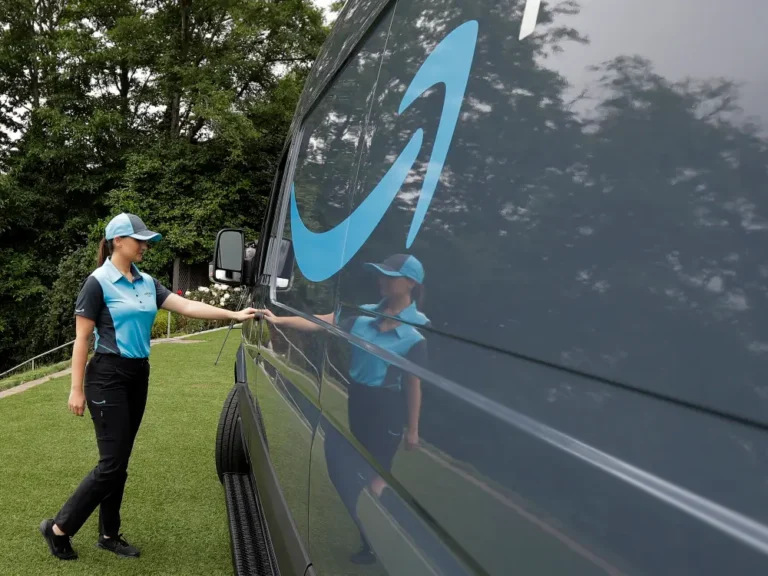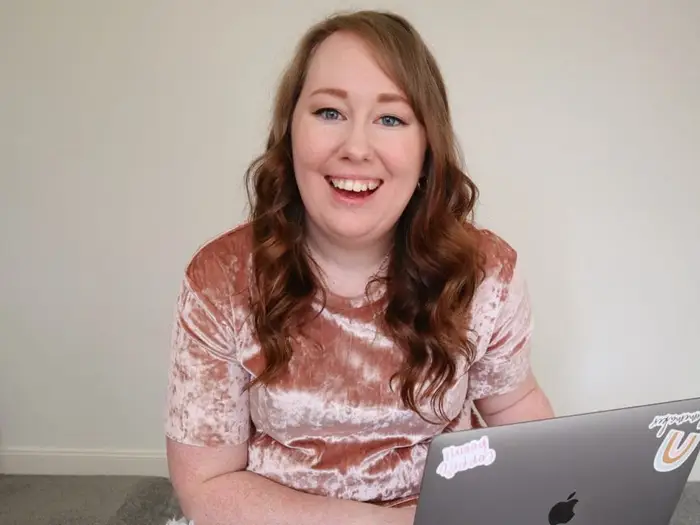I moved to the US from India and took out a $59K loan to follow my dream of landing a job in Big Tech. My risk paid off.

Nagdive said she’s glad she took a risk by moving to the US from India for her tech career.
I grew up in a very small town in India called Kalyan, near Mumbai. I’ve been interested in computers since I was a child and wanted to pursue a career in computer science since the eighth grade.
I did my bachelor’s degree in computer science at Visvesvaraya National Institute of Technology in India from 2012 to 2016. In the last year of my course, I got an offer as a software engineer for a multinational company in India.
I’m the first woman in my family to graduate from college and work for a big corporation.
I applied for a master’s in the US
I moved in with some roommates from work. They were all sitting the graduate record examination, which can help with admissions to business schools in the US.
I’d never heard of it. No one close to me had pursued a career outside our hometown, let alone in the US.
At 23, I knew I wanted to spend my whole career in tech, and it seemed like a good time to study for a couple of years in the US. I wanted to deepen my understanding of computer science and work on more complex projects. I decided to do the exam and see what happened. Every day after my 9-to-5, I’d study for the exam.
I sat the exam and got decent marks, so I applied for several master’s degrees in computer science in the US in 2017. I had a rough idea of how expensive they were, but I didn’t know how I’d pay for them. I got into the computer science master’s program at Stony Brook College in New York to start in 2018.
I took a big risk taking out a loan
I’d funded my examination and college application fees through my job, but I had no idea how I would finance a master’s degree in America.
The course fees were $59,000. That is a lot of money, which my family didn’t have.
I’d have to take on a lot of debt. One option was to take out a collateral loan on our family home. The bank would be able to take the property as collateral if I didn’t make my payments. My dad and I discussed this, but we didn’t want our only house to be an asset on the loan.
I decided to take out a non-collateral loan to cover the fee cost, which has a higher interest rate.
Relatives asked me why I was taking on so much debt for my education instead of buying a house in India, building my own company, or making an investment. My dad, who had paid for my bachelor’s degree, was worried, but my mom encouraged him to trust me.
I questioned whether it was worth it, but I wanted to invest in myself. I thought: “If I don’t take this risk now, I will regret it for the rest of my life.”
To counteract my doubts, I developed a calculated risk framework. What would be the worst thing that could happen, and how I would resolve it?
The worst-case scenario was that I didn’t get a job in the US, and it would take me a lot longer to repay my debt, including more interest. My solution was to return to India, where I knew I could get work. It might take me a decade to repay my debt, but at least I’d have no regrets.
I focused on what I could control
I’d never been to the US before, but my debts scared me more than moving to a new country. Stony Brook is in New York. I visualized skyscrapers like in movies, but the college was actually in Long Island. My room was cramped. I initially wondered why I had come, but I made friends and adjusted to the city.
Two weeks after I started, my friend and I wanted to try out salsa classes. That day, I heard from my roommates that someone on the course had already landed an internship with Microsoft. I hadn’t even started preparing to apply to internships. I ditched the salsa and told myself I’d focus solely on my applications to tech jobs and interview preparation.
Landing an internship could help my résumé and could be converted into a full-time offer. I worked day and night at college and gave my 100%. Working so hard on application alongside my course and assignments was pretty stressful. All the computer science students worked and lived on the same campus – it felt competitive, but also motivating.
I was often homesick and called my parents daily. I liked hearing about what they had for lunch and dinner, just the basic things.
I landed a job with Salesforce
I got an internship with Salesforce in the summer of 2019 while doing my master’s. It was in Washington state. I got to work on a project. I realized it was a great place for engineering and innovation and I really liked the culture. It helped me figure out I wanted to work on the backend side of things, on large scale systems.
My manager was a great mentor and when I finished the project, I was offered a full-time role on the technical team that aligned with my interests. It was based in the Bay Area.
I felt so relieved, and happy that my hard work had finally paid off. Not only could I repay my debt, but I could contribute to a great tech product at Salesforce.
I moved to Silicon Valley
I moved to the Bay Area in February 2020. I realized how much tech innovation is happening in the area and how many opportunities there were to build relationships with people in the industry. But I was homesick because I couldn’t travel home to India during the pandemic.
I managed to pay back my loan in 2020.
I’ve been here for four years, with Salesforce sponsoring my visa. I’m enjoying life in the US and haven’t got plans to return to India. I’ll figure that out in a couple of years.
I’m so grateful I get to work with smart engineers on my team on a daily basis. I’ve seen an improvement in my problem-solving and communication skills in engineering.
Last year, I was able to bring my parents to the US for a holiday. It was a dream for me to show them around all the beautiful places in California. I’ve grown so much over the last few years both as a software engineer and as a person. Starting from scratch in a new country makes you tough. I’m so glad I invested in myself.
For other students who don’t have a family background where they know how to figure all this out, if I can achieve my American dream, you can too.






